Solo vs Guided Trips: What’s Best for Deep Sea Fishing?
The allure of deep sea fishing draws thousands of enthusiasts to coastal regions worldwide each year. As you stand on the precipice of planning your next marine adventure, one crucial decision looms: should you venture into the deep blue independently or enlist the expertise of a professional guide? Both approaches offer distinct advantages and potential drawbacks that can significantly impact your experience. The choice between solo and guided deep sea fishing trips extends beyond simple preference—it touches on aspects of safety, knowledge acquisition, cost considerations, and the type of experience you hope to create. This comprehensive guide will navigate the waters of this important decision, helping you determine which option aligns best with your fishing aspirations, skill level, and personal circumstances.
Understanding Deep Sea Fishing Fundamentals
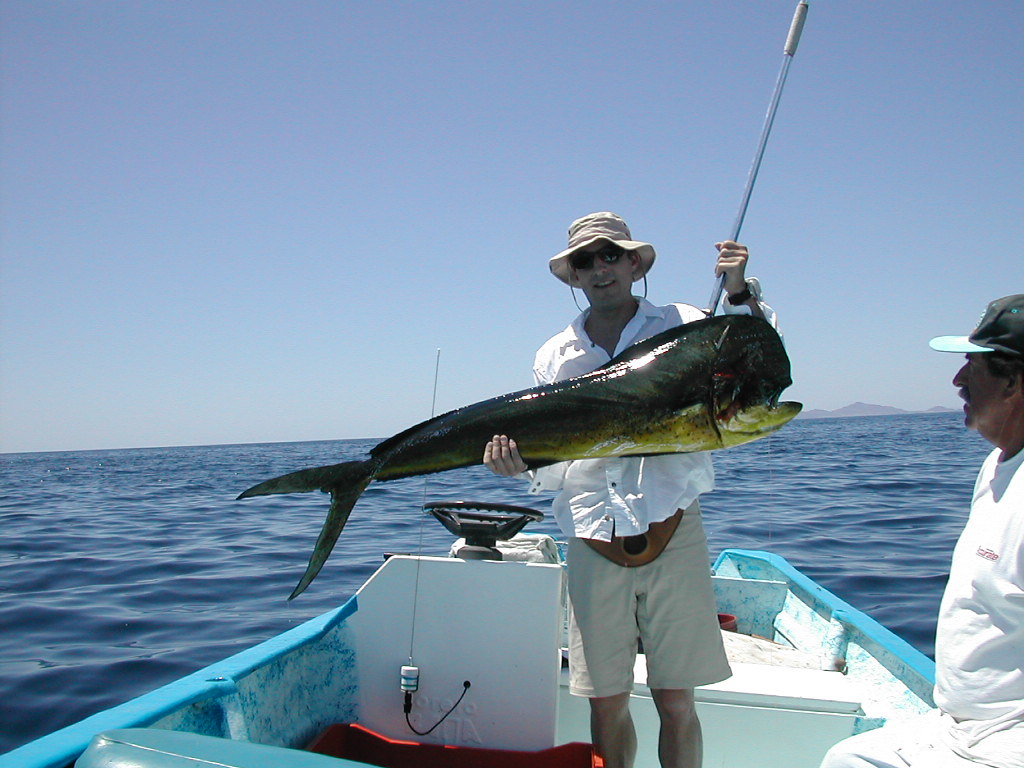
Deep sea fishing, also known as offshore fishing, takes place in waters at least 100 feet deep where larger, more challenging game fish reside. Unlike nearshore fishing, deep sea excursions require specialized equipment, boats capable of handling open ocean conditions, and knowledge of navigation, weather patterns, and fish behavior. The target species typically include marlin, tuna, sailfish, mahi-mahi, and various sharks—all prized catches that demand specific techniques and considerable strength to land. The deeper waters present unique challenges including stronger currents, rapidly changing weather conditions, and the need for electronic equipment to locate fish that might be hundreds of feet below the surface. Understanding these fundamentals is essential regardless of whether you choose to fish independently or with professional guidance.
The Solo Deep Sea Fishing Experience
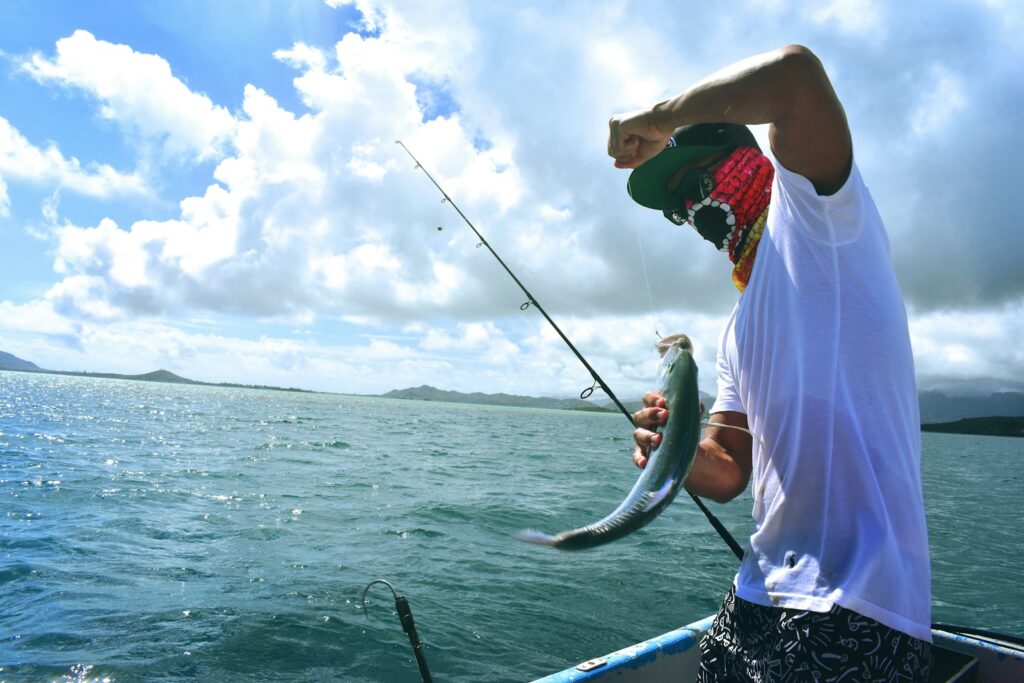
Embarking on a solo deep sea fishing adventure offers an unparalleled sense of freedom and accomplishment. When you captain your own vessel and make independent decisions about fishing locations, techniques, and timing, each catch becomes a personal victory born from self-reliance. Solo trips allow for complete flexibility—you can change course on a whim, extend your time if the fish are biting, or cut the day short without consulting anyone else’s preferences. Many experienced anglers value the meditative quality of solitary fishing, where the rhythmic sounds of the ocean create a peaceful backdrop for reflection. However, this independence comes with significant responsibility, as you alone must handle navigation, equipment issues, and any emergencies that might arise miles from shore.
Benefits of Guided Fishing Charters
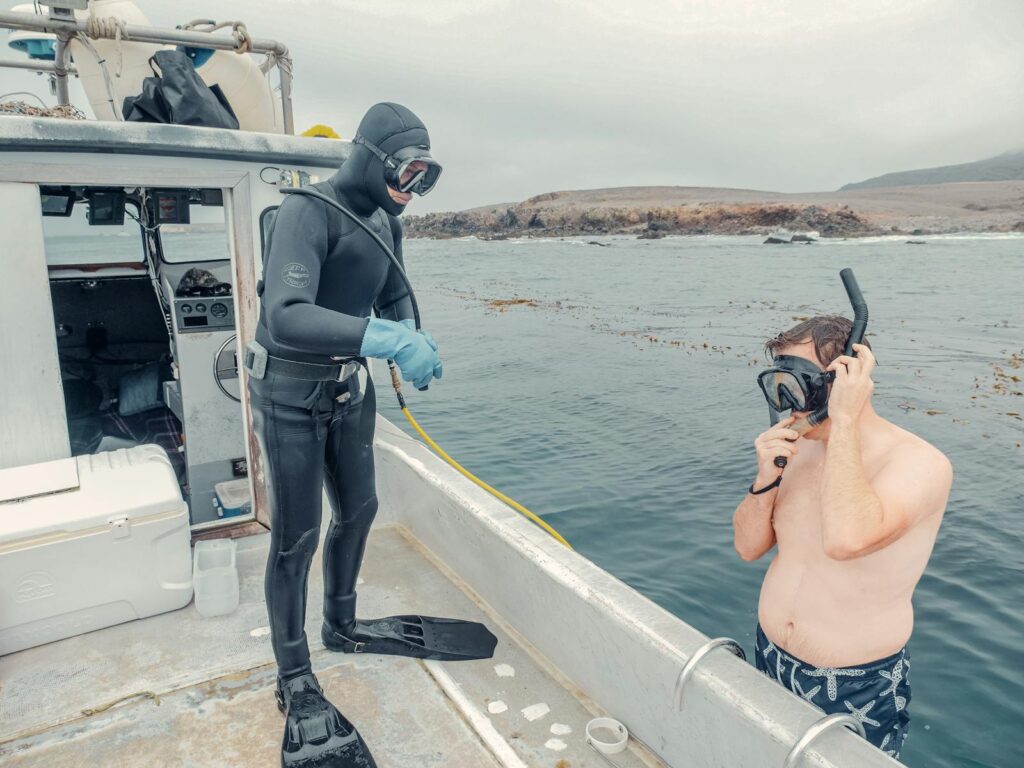
Professional fishing charters provide access to a wealth of local knowledge that would take years for an individual to accumulate. Experienced captains and guides know the regional waters intimately, understanding seasonal migration patterns, identifying productive fishing grounds, and recognizing subtle environmental cues that indicate where fish are likely to be feeding. This expertise dramatically increases your chances of a successful outing, particularly in unfamiliar waters.Guided trips also offer the advantage of specialized equipment that might be prohibitively expensive for occasional anglers to purchase. Additionally, the safety factor cannot be overstated—professional captains are trained to handle emergencies, navigate challenging conditions, and maintain communication with shore authorities.
For newcomers to deep sea fishing, the educational value of observing and learning from seasoned professionals provides an accelerated learning curve that can improve future fishing endeavors.
Cost Comparison and Value Assessment

The financial aspects of solo versus guided fishing deserve careful consideration beyond simple price comparison. Charter trips typically range from $600 to $2,000 per day depending on the boat size, trip duration, location, and level of service provided. While this upfront cost may seem substantial, it includes the captain’s expertise, fuel, bait, quality equipment, and often fish cleaning services. In contrast, solo fishing requires significant initial investment in a suitable offshore vessel, which can easily exceed $50,000, plus ongoing costs for maintenance, insurance, storage, electronics, fishing gear, and fuel. For occasional anglers, the infrequent use of such expensive equipment rarely justifies the investment.
However, for those who fish regularly in the same region, owning a boat eventually becomes more economical than repeated charter fees. The value equation also includes the time saved when guides quickly locate productive fishing grounds versus the potential hours a solo angler might spend searching.
Safety Considerations for Offshore Waters
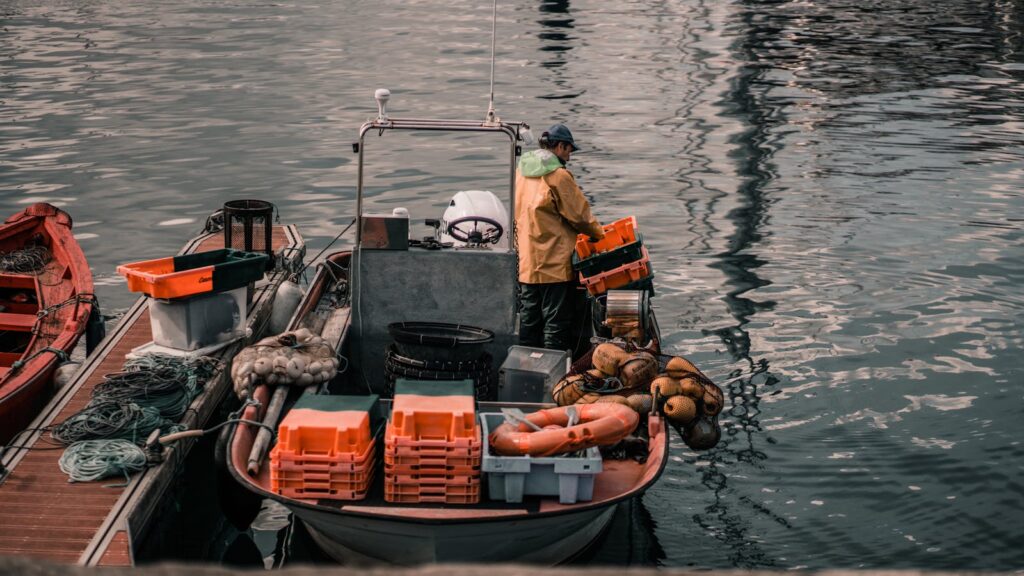
The open ocean presents inherent risks that demand serious consideration when choosing between solo and guided expeditions. Professional charter captains undergo rigorous training and certification in navigation, emergency procedures, first aid, and marine safety protocols. Their vessels are regularly inspected and equipped with comprehensive safety gear including life rafts, EPIRBs (Emergency Position Indicating Radio Beacons), marine radios, first aid kits, and firefighting equipment. Solo anglers must independently acquire this safety knowledge and equipment, maintaining vigilance against rapidly changing weather conditions that can transform calm seas into dangerous environments within hours.
Navigation errors in the open ocean can have serious consequences, particularly when fishing grounds are dozens of miles from shore. Mechanical failures present another significant concern—charter boats typically have redundant systems and the captain’s mechanical expertise, while solo boaters must be prepared to handle repairs themselves or potentially face extended waits for assistance.
Knowledge Acquisition and Learning Curve
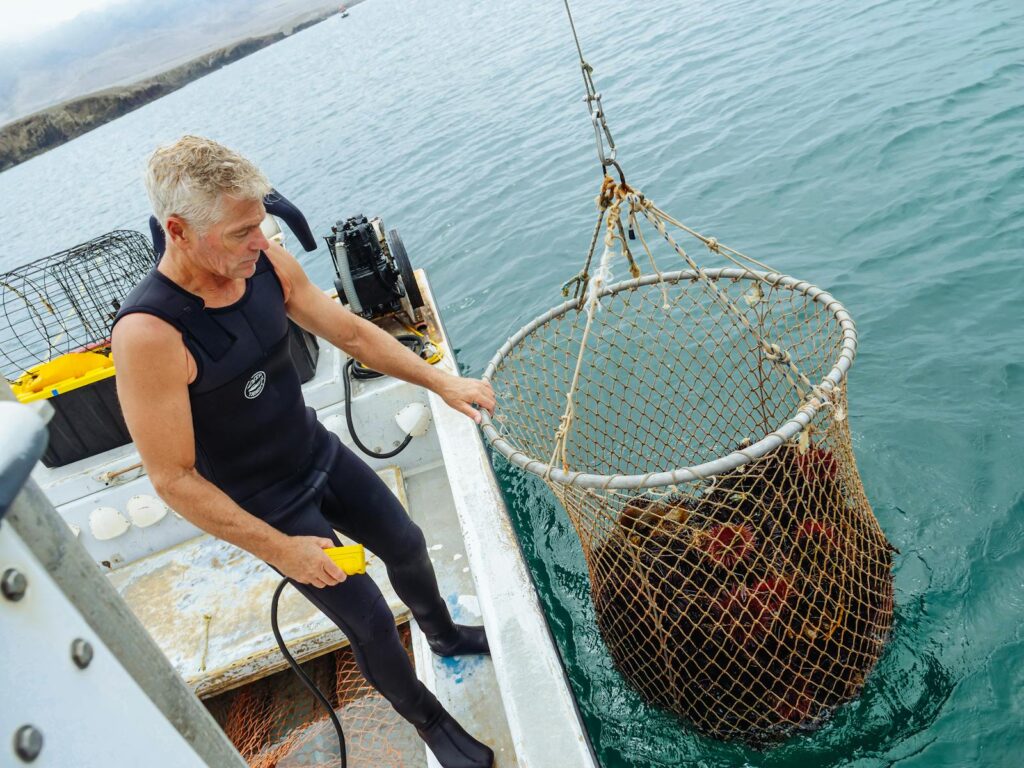
The learning trajectory differs dramatically between solo and guided fishing approaches. Self-taught anglers typically progress through a longer, steeper learning curve punctuated by trial and error—sometimes costly errors when expensive equipment or lost fishing opportunities are involved. This path requires substantial research through books, online resources, and conversations with experienced anglers, followed by practical application and adaptation based on results. Guided trips, conversely, offer concentrated learning opportunities where you can absorb techniques, location knowledge, and fish behavior insights from professionals who have spent thousands of hours on the water.
Many guides actively educate their clients, explaining why they’ve chosen specific locations, demonstrating effective rigging techniques, and sharing how to read environmental indicators. The accelerated knowledge transfer on guided trips can dramatically shorten the learning period, allowing newer anglers to become proficient much faster than those who choose to learn independently.
Social Dynamics and Group Experiences
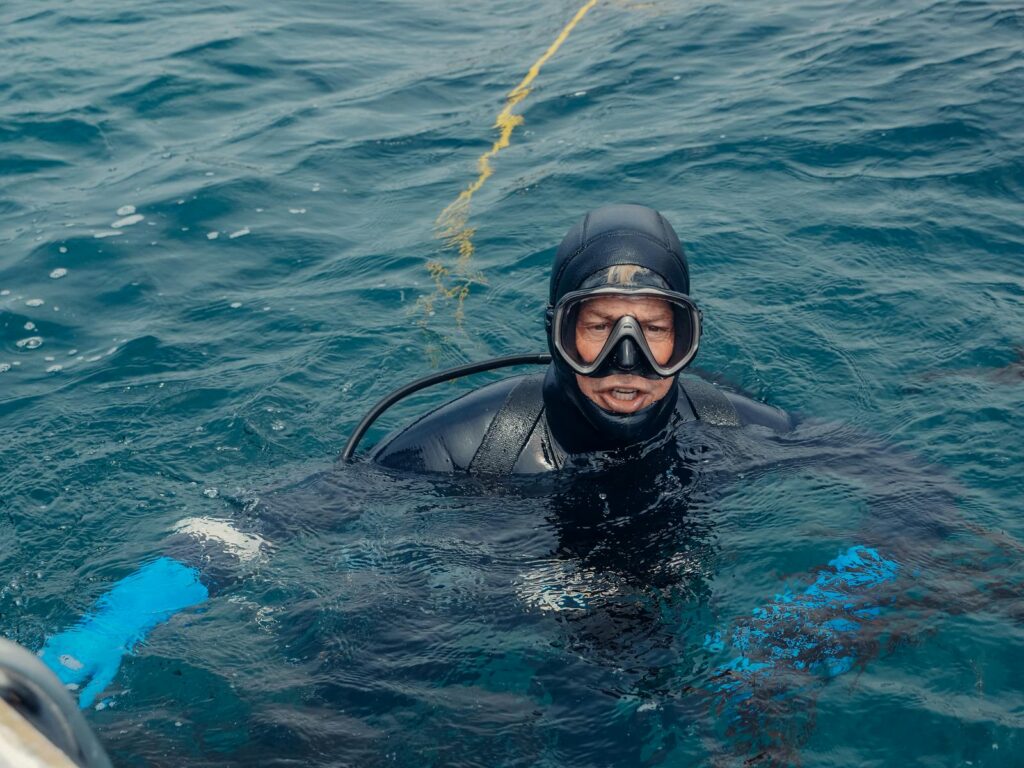
The social aspects of fishing expeditions significantly impact the overall experience and should factor into your decision-making process. Charter trips often involve shared boats with other fishing parties, creating opportunities to meet fellow enthusiasts and share in collective excitement when someone lands a significant catch. This communal atmosphere can enhance the experience through shared knowledge, camaraderie, and the celebratory environment that develops over the course of a productive day. Family fishing charters specifically cater to multi-generational groups, with guides accustomed to accommodating varying skill levels and ensuring everyone from grandparents to young children can participate appropriately.
Solo trips, by contrast, offer more intimate experiences when shared with just close friends or family members, allowing for deeper connections without the presence of strangers. For those seeking solitude, nothing compares to the peaceful isolation of navigating offshore waters alone, where the absence of social obligations allows for complete immersion in the natural environment.
Equipment Requirements and Considerations
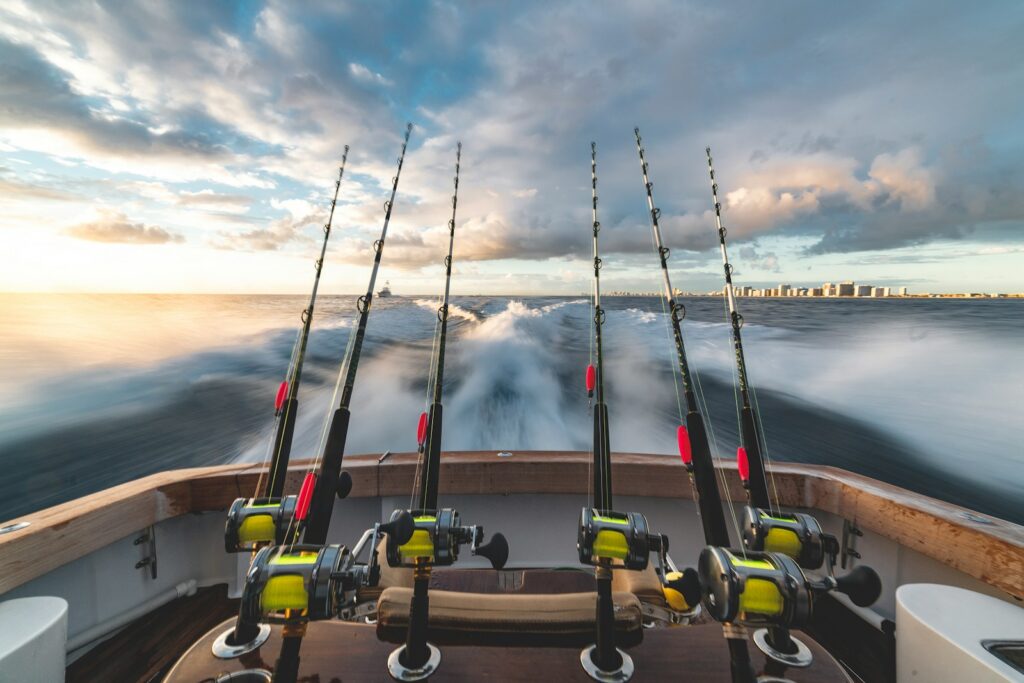
The equipment demands for deep sea fishing are substantial regardless of your chosen approach, but they differ significantly between solo and guided options. Charter operations provide all necessary fishing equipment—high-quality rods and reels appropriate for targeted species, terminal tackle, bait, and specialized gear like fighting chairs for larger game fish. This arrangement eliminates the need for substantial personal investment in gear that might only see occasional use. Solo anglers must procure and maintain all this equipment themselves, developing knowledge about appropriate setups for different target species and conditions.
Beyond fishing gear, solo boaters need comprehensive navigation electronics including GPS, fish finders, radar, and communication systems, all requiring technical knowledge to operate effectively. Maintenance responsibilities extend to both the boat and fishing equipment, representing a significant time commitment that charter clients can avoid entirely. For traveling anglers, charter operations eliminate the logistical challenges of transporting bulky fishing gear to distant locations.
Access to Prime Fishing Grounds

Location knowledge represents one of the most compelling advantages of guided fishing experiences. Professional captains maintain detailed records of productive areas, understanding how these locations shift with seasons, weather patterns, and water temperatures. Many guides share information networks with other captains, receiving real-time updates about where fish are being caught on any given day. Some prime fishing areas remain closely guarded secrets within professional circles, rarely discovered by independent anglers without insider knowledge. Charter operations often have access to artificial reefs, FADs (Fish Aggregating Devices), and other productive locations whose coordinates aren’t publicly available.
Solo anglers must build their location knowledge gradually through exploration, research, and sometimes expensive trial and error, making multiple trips to unproductive areas before discovering reliable fishing grounds. The time efficiency of having a guide take you directly to proven locations can substantially increase your chances of success, particularly when visiting an unfamiliar region for a limited time.
Physical Demands and Comfort Factors
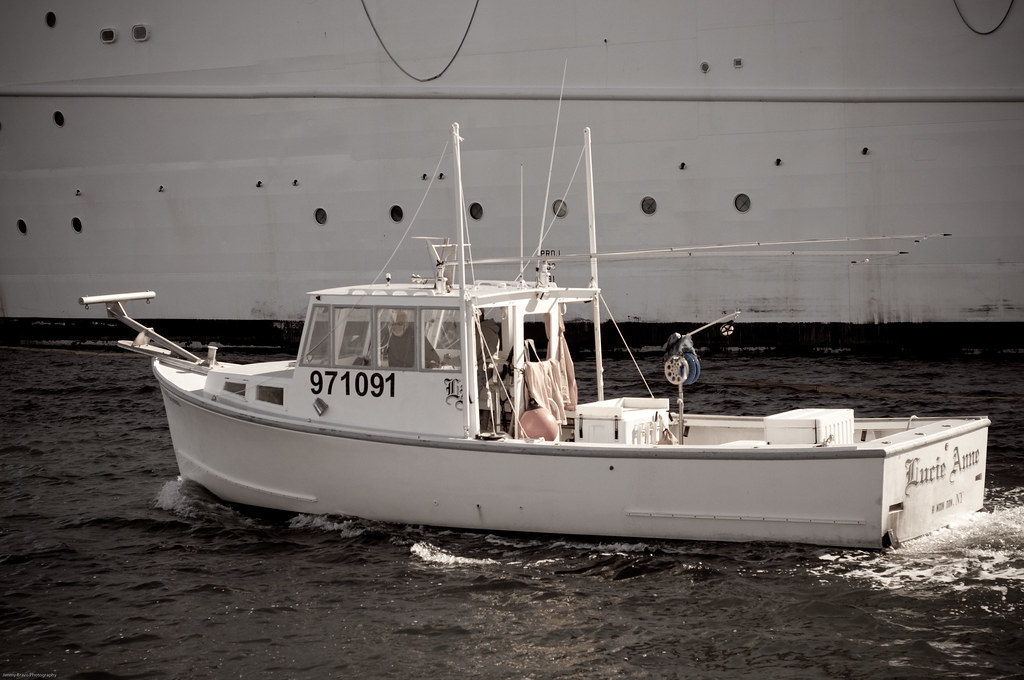
The physical requirements of deep sea fishing vary considerably between solo and guided experiences. Operating your own vessel demands significant physical capability—launching boats, handling lines, managing anchors, and navigating through challenging conditions all require strength and stamina. Solo anglers must simultaneously manage the boat and their fishing activities, sometimes in physically demanding conditions like rough seas or strong winds. Charter operations distribute these responsibilities among crew members, allowing clients to focus primarily on the fishing experience itself. Many high-end charters provide amenities that enhance comfort during long days at sea, including climate-controlled cabins, proper restroom facilities, shade structures, and sometimes even meal preparation.
These comfort factors become increasingly important during extended offshore trips where anglers might spend 8-12 hours on the water. For anglers with physical limitations or health concerns, guided trips offer accessibility that might not be practical with solo fishing, as crew members can provide assistance with landing fish and moving around the vessel.
Flexibility and Scheduling Considerations
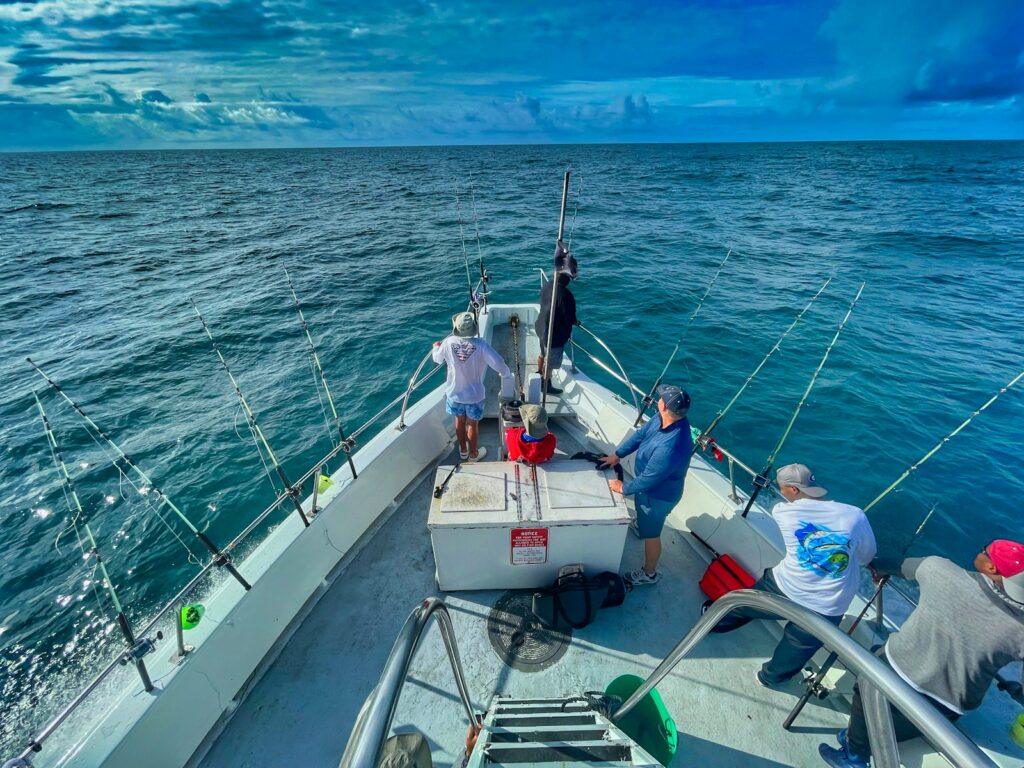
The scheduling dynamics between solo and guided fishing present distinct trade-offs worth evaluating against your personal circumstances. Boat owners enjoy unparalleled scheduling flexibility, able to make spontaneous decisions to fish when conditions appear favorable or when their personal schedule allows. This flexibility extends to trip duration—solo anglers can cut trips short if conditions deteriorate or extend them when fishing proves exceptional. Charter operations typically run on fixed schedules with predetermined departure and return times, requiring advance booking that might be impacted by weather cancellations during peak seasons. However, guides typically offer rescheduling options when weather conditions force cancellations, and many maintain waiting lists for last-minute openings.
For travelers planning fishing trips around vacation schedules, charters provide certainty through guaranteed availability on specific dates when booked in advance. Solo fishing depends entirely on your boat’s readiness and functionality, which can be compromised by maintenance issues that might arise immediately before planned outings.
Conservation Practices and Responsible Fishing
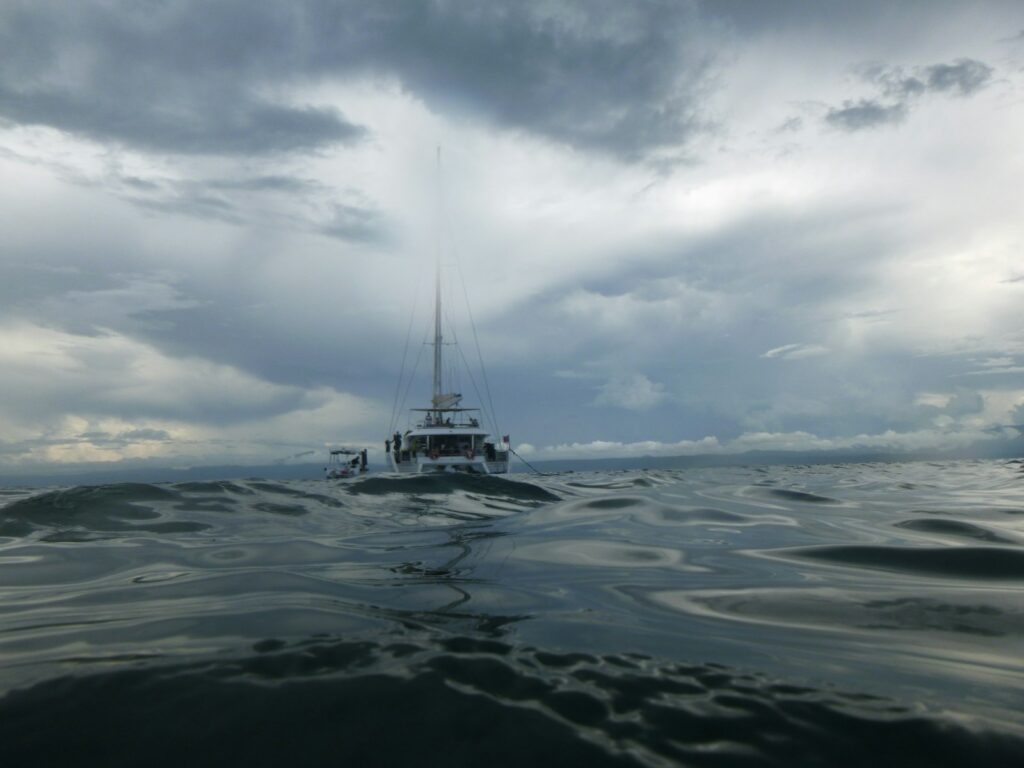
Ethical angling practices play an increasingly important role in preserving marine ecosystems for future generations of fishermen. Professional guides typically demonstrate extensive knowledge of current regulations, seasonal restrictions, and proper fish handling techniques that maximize survival rates for catch-and-release species. Many charter operations participate in conservation initiatives, tagging programs, and data collection efforts that contribute to scientific understanding of fish populations. Reputable guides emphasize sustainable practices, discouraging excessive harvesting and educating clients about the importance of preserving breeding stock.
Solo anglers must independently research and adhere to regulations that vary by region and change frequently, requiring ongoing education about size limits, bag limits, and protected species identification. Both approaches can be conducted responsibly, but guided trips offer the advantage of learning established conservation practices from experienced professionals who understand the long-term importance of sustainable fishing.
For environmentally conscious anglers, inquiring about a charter operation’s conservation philosophy and practices should be part of the selection process.
Making the Right Choice for Your Situation
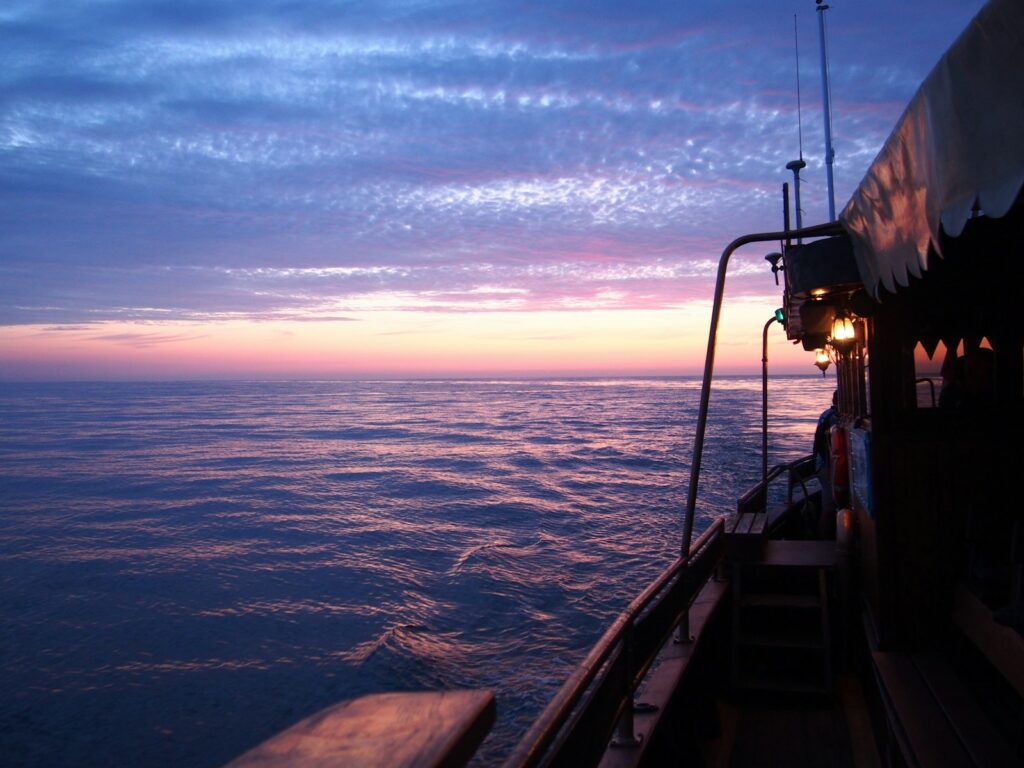
The optimal choice between solo and guided deep sea fishing ultimately depends on an honest assessment of your personal circumstances, experience level, and fishing objectives. For novice anglers, occasional fishermen, or those visiting unfamiliar waters, guided trips offer tremendous value through knowledge access, equipment provision, and dramatically increased chances of success. Experienced anglers who fish frequently in the same region might eventually find boat ownership more economical and rewarding, particularly if they value the independence and satisfaction of self-directed fishing adventures.
Many anglers follow a progressive path, beginning with guided charters to build fundamental knowledge, transitioning to boat rentals as they gain confidence, and eventually purchasing their own vessels after developing substantial experience. Consider practical factors like storage options for a boat, maintenance capabilities, and whether you’ll use the vessel frequently enough to justify the investment.
Regardless of your choice, both approaches can yield memorable experiences and impressive catches when pursued with proper preparation and realistic expectations.
Conclusion: Balancing Freedom and Expertise
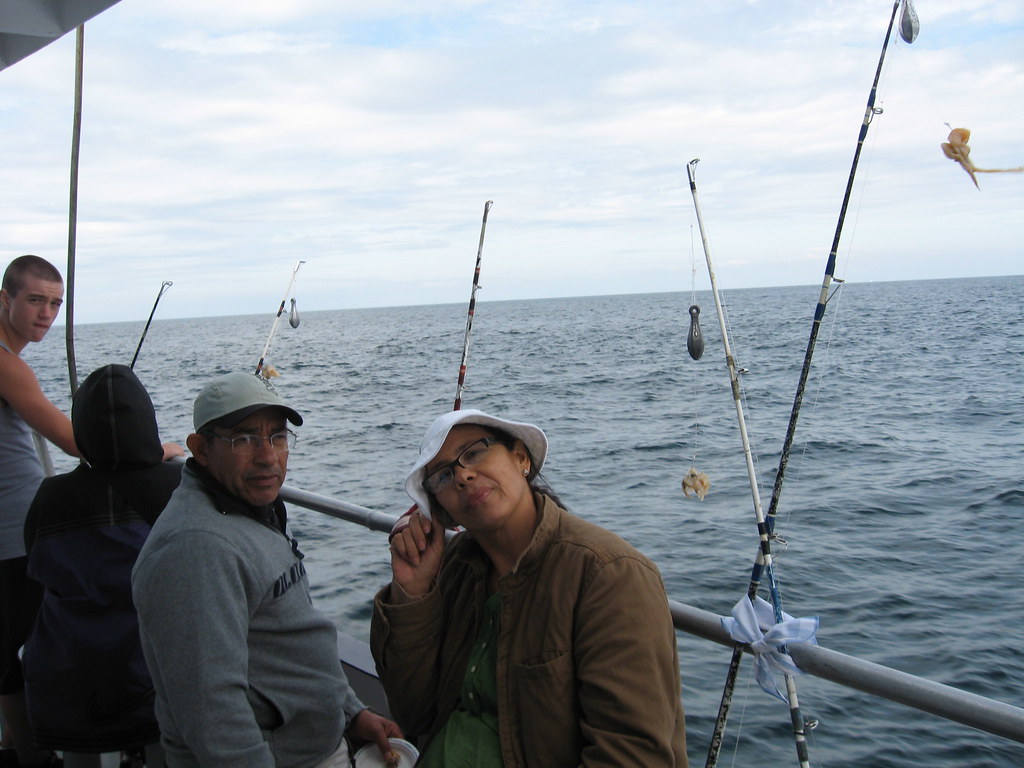
The decision between solo and guided deep sea fishing represents a balance between independent adventure and leveraged expertise, each offering distinct advantages aligned with different angler profiles. Guided trips provide unmatched access to knowledge, equipment, and productive locations, dramatically increasing success rates while minimizing required investment and risk. Solo expeditions deliver unparalleled freedom, deeper personal satisfaction from self-directed success, and potentially lower long-term costs for frequent anglers. Many enthusiasts find that combining both approaches serves them well—using guides when exploring new regions or targeting unfamiliar species, while enjoying the independence of solo fishing in familiar waters.
Remember that fishing success encompasses more than just catching fish; the quality of the experience, knowledge gained, and memories created hold equal importance. By realistically assessing your experience level, fishing frequency, budget constraints, and personal preferences, you can make an informed choice that maximizes your enjoyment of the remarkable world of deep sea fishing.
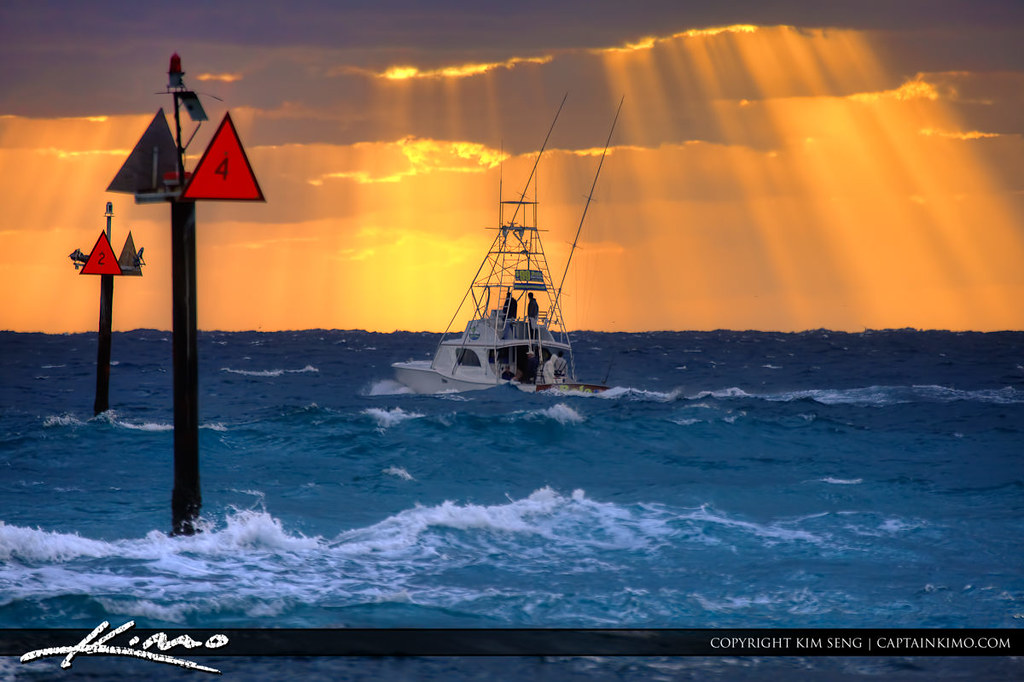
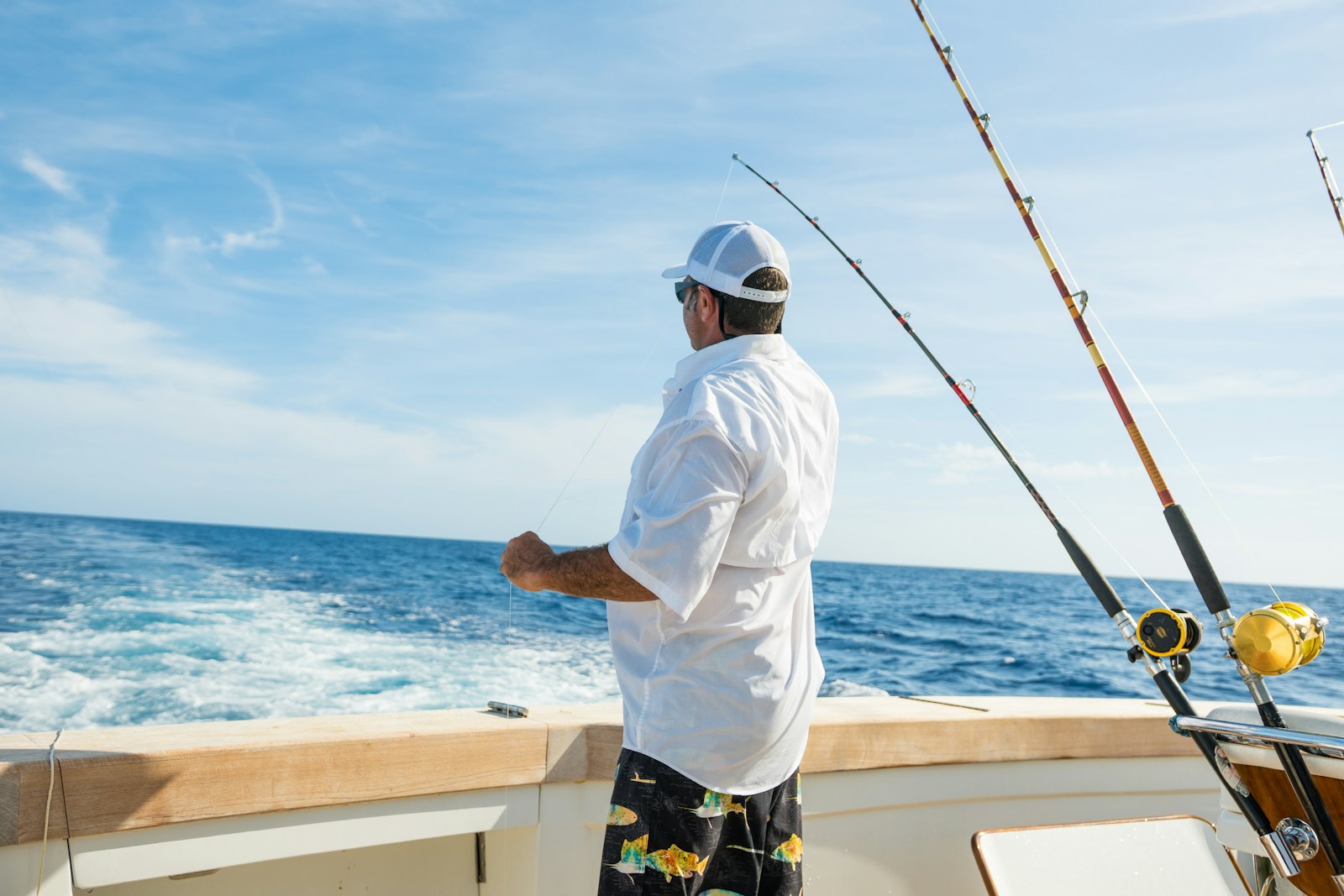
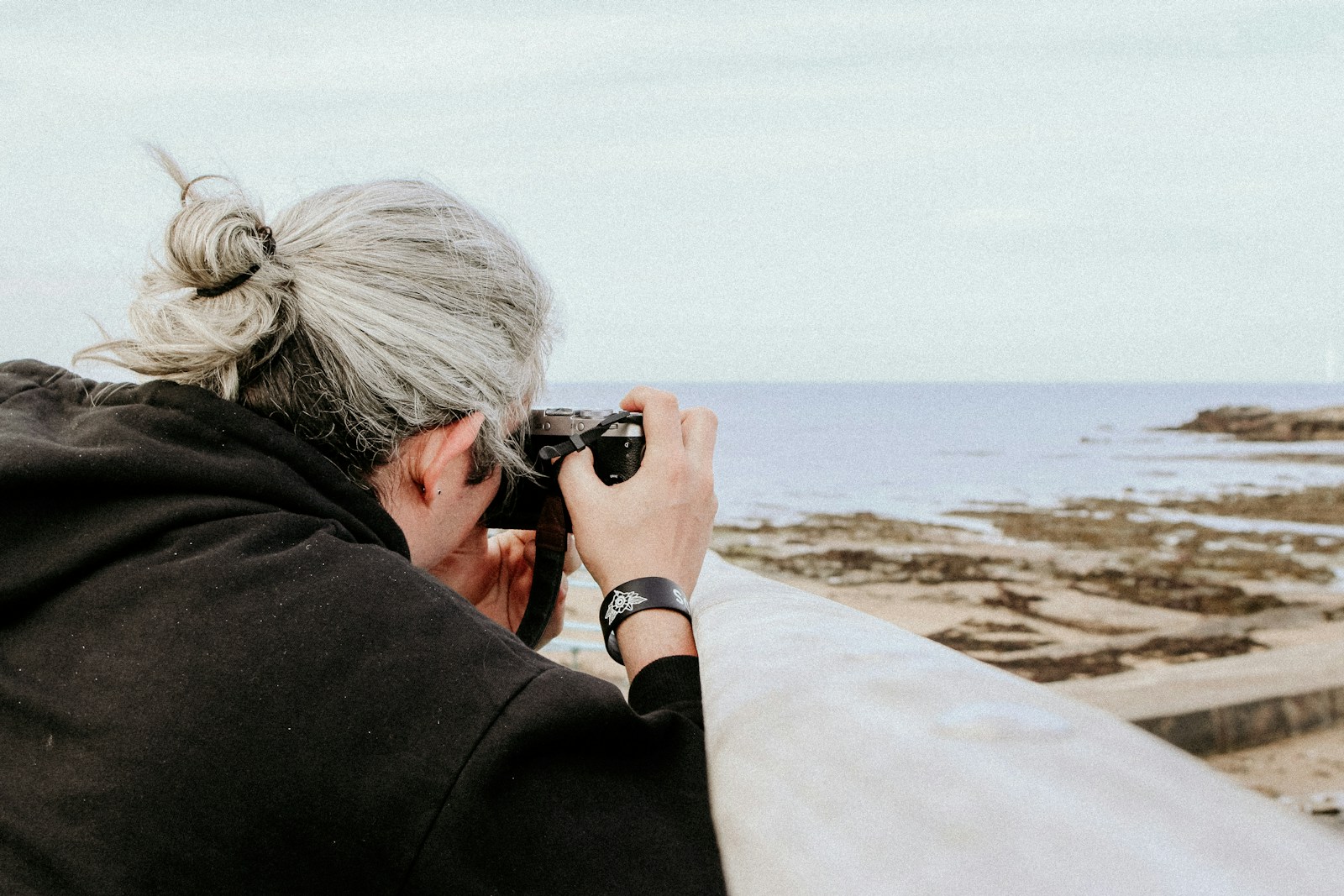

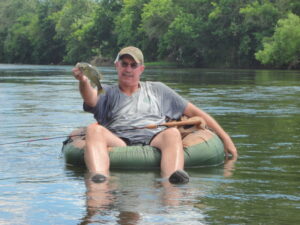
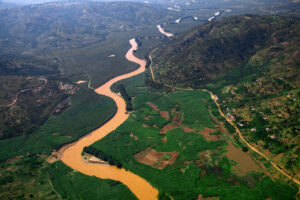








Post Comment